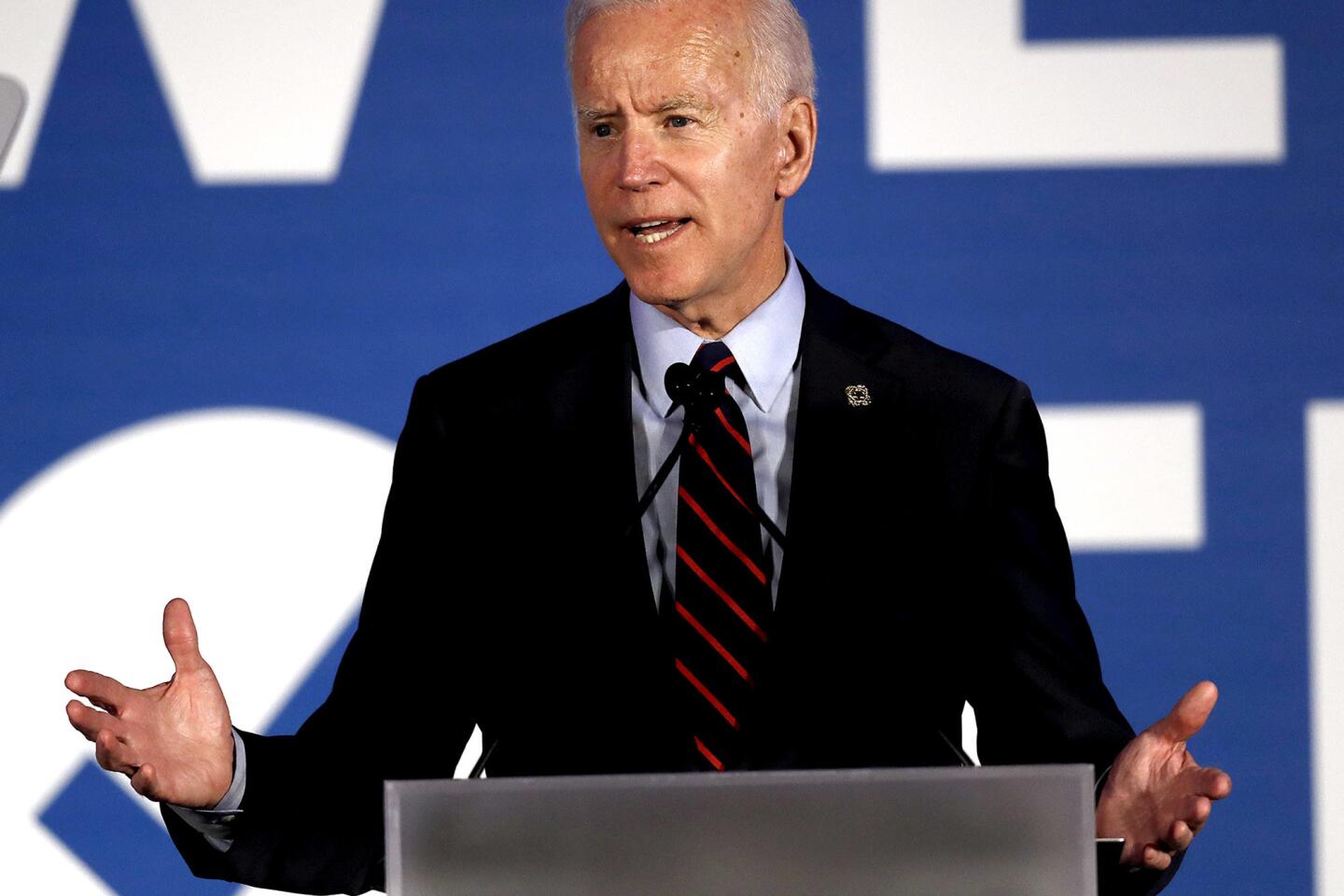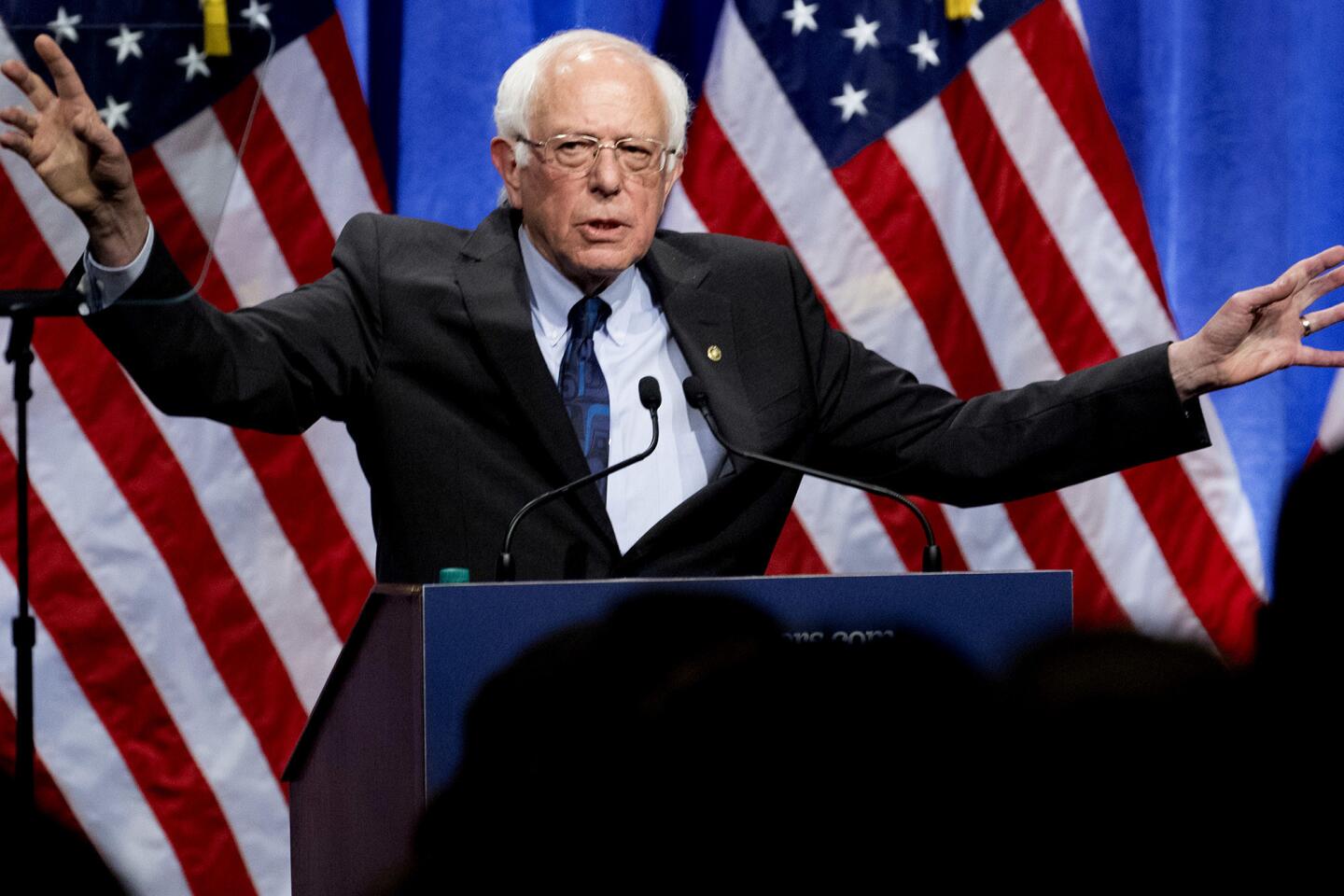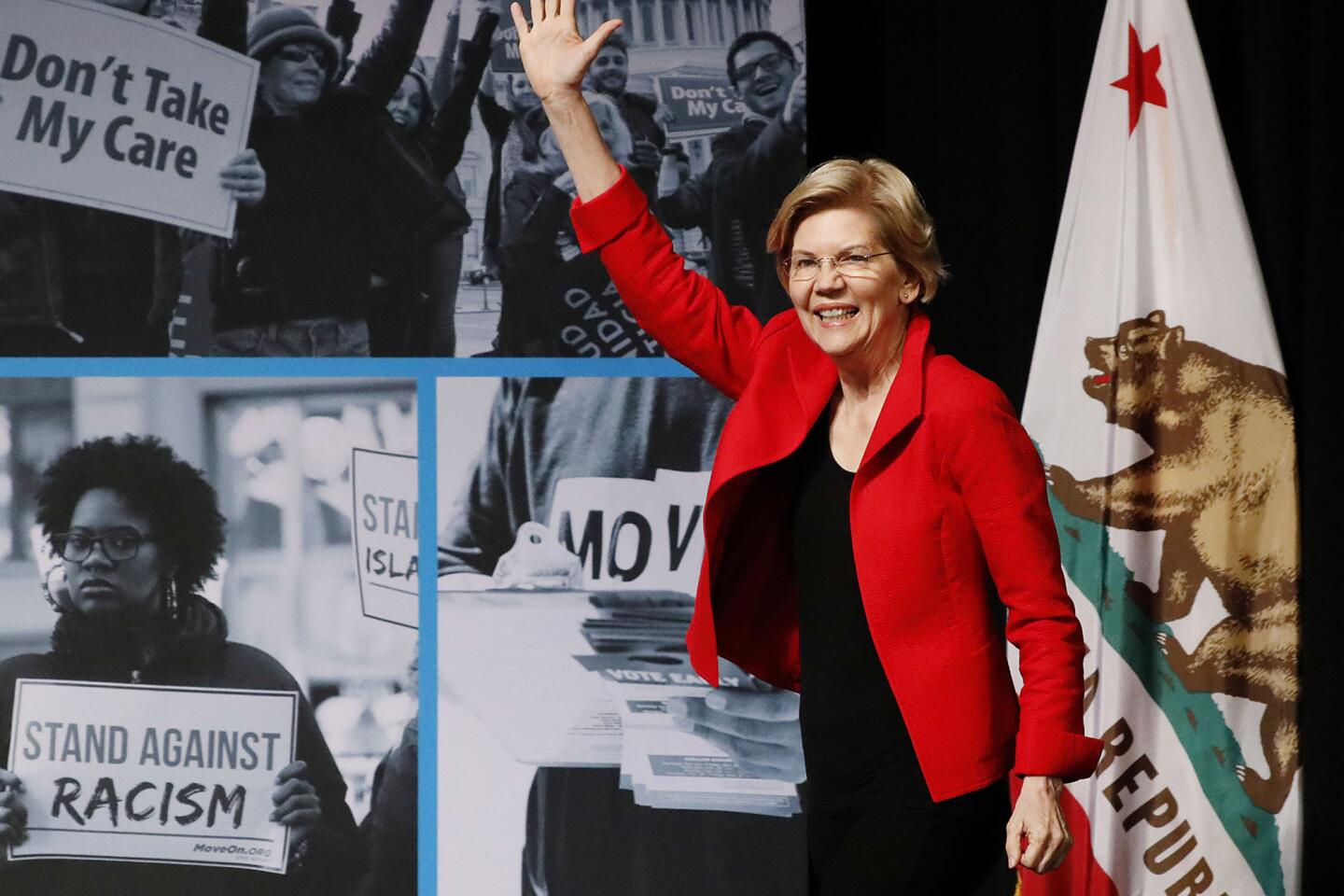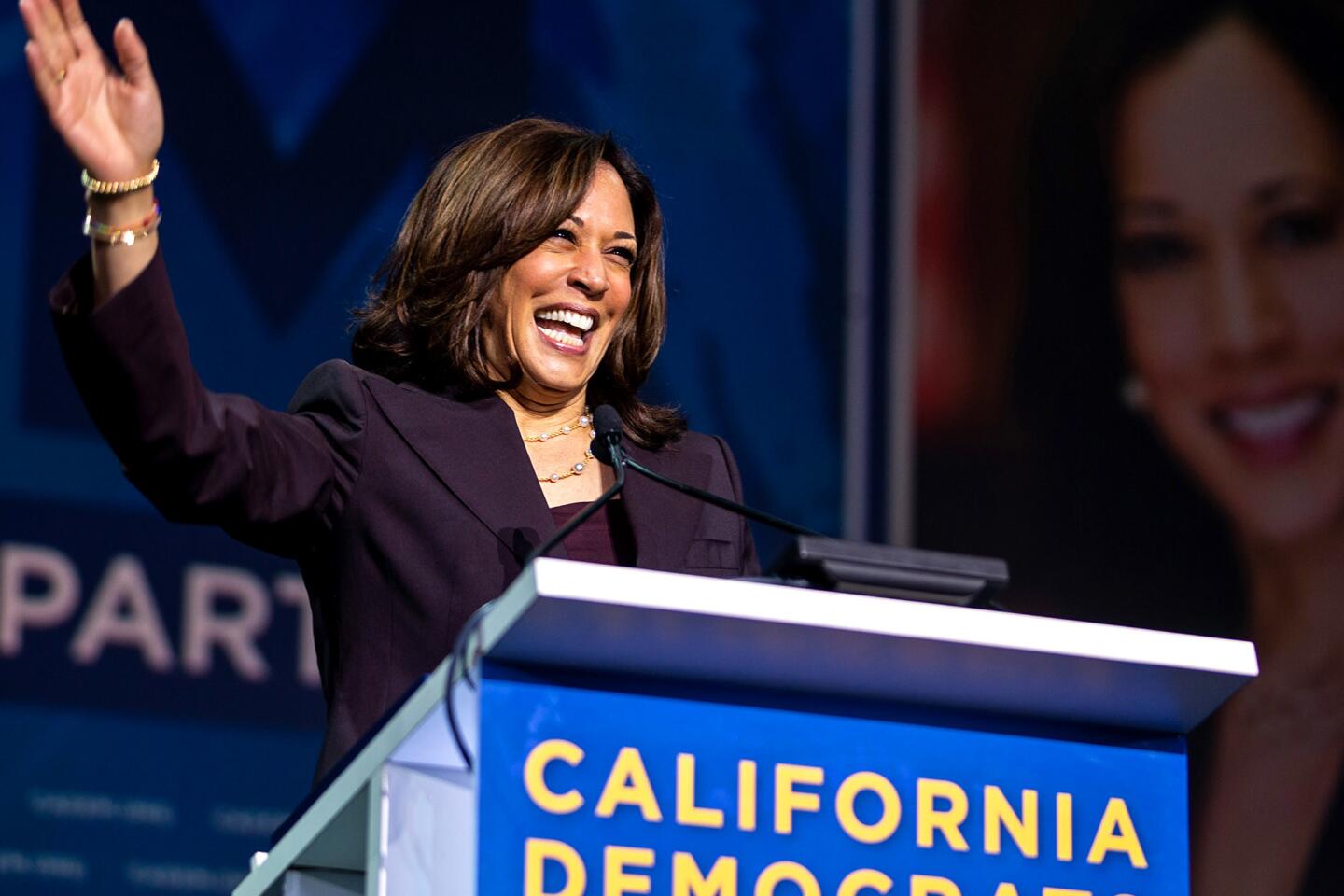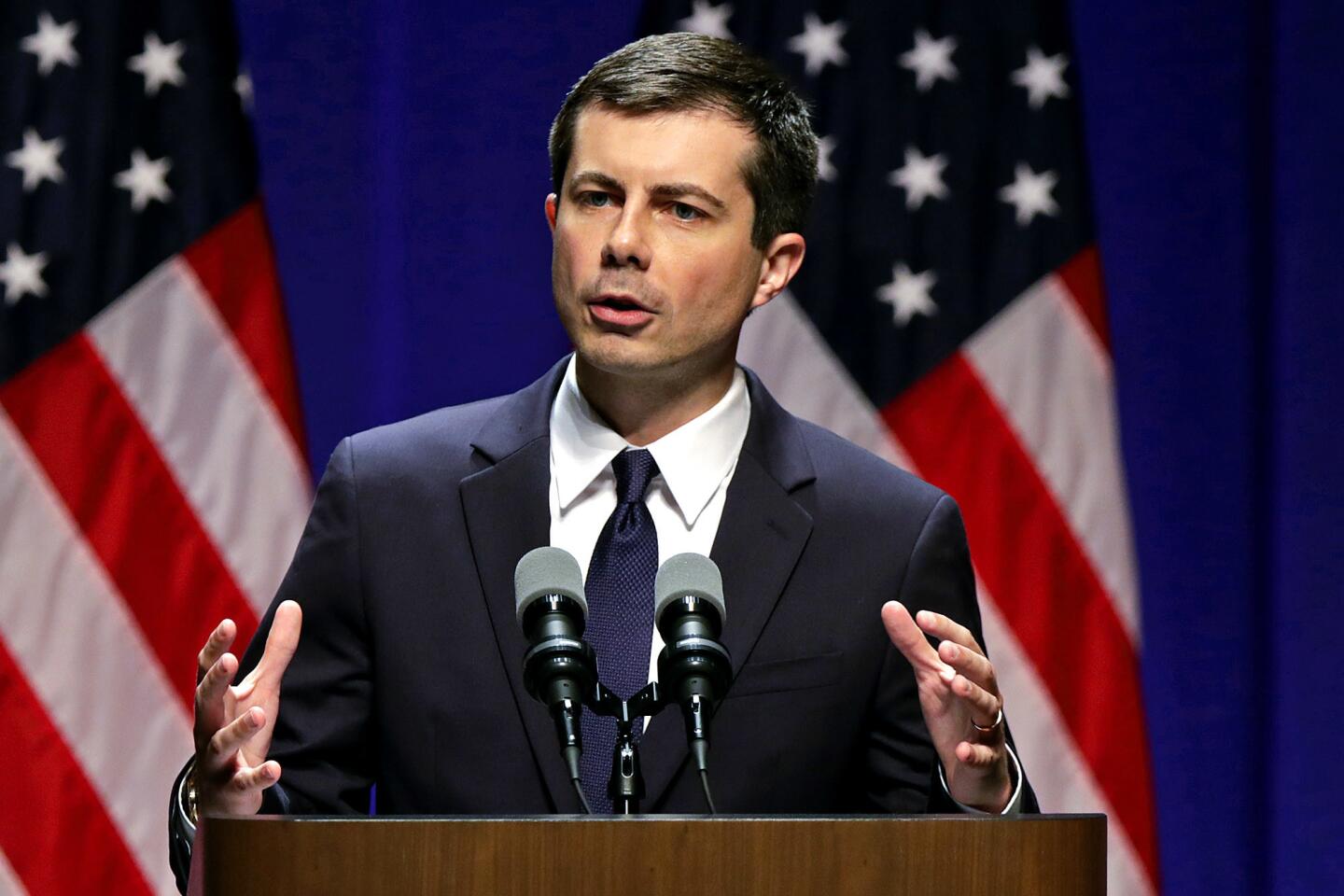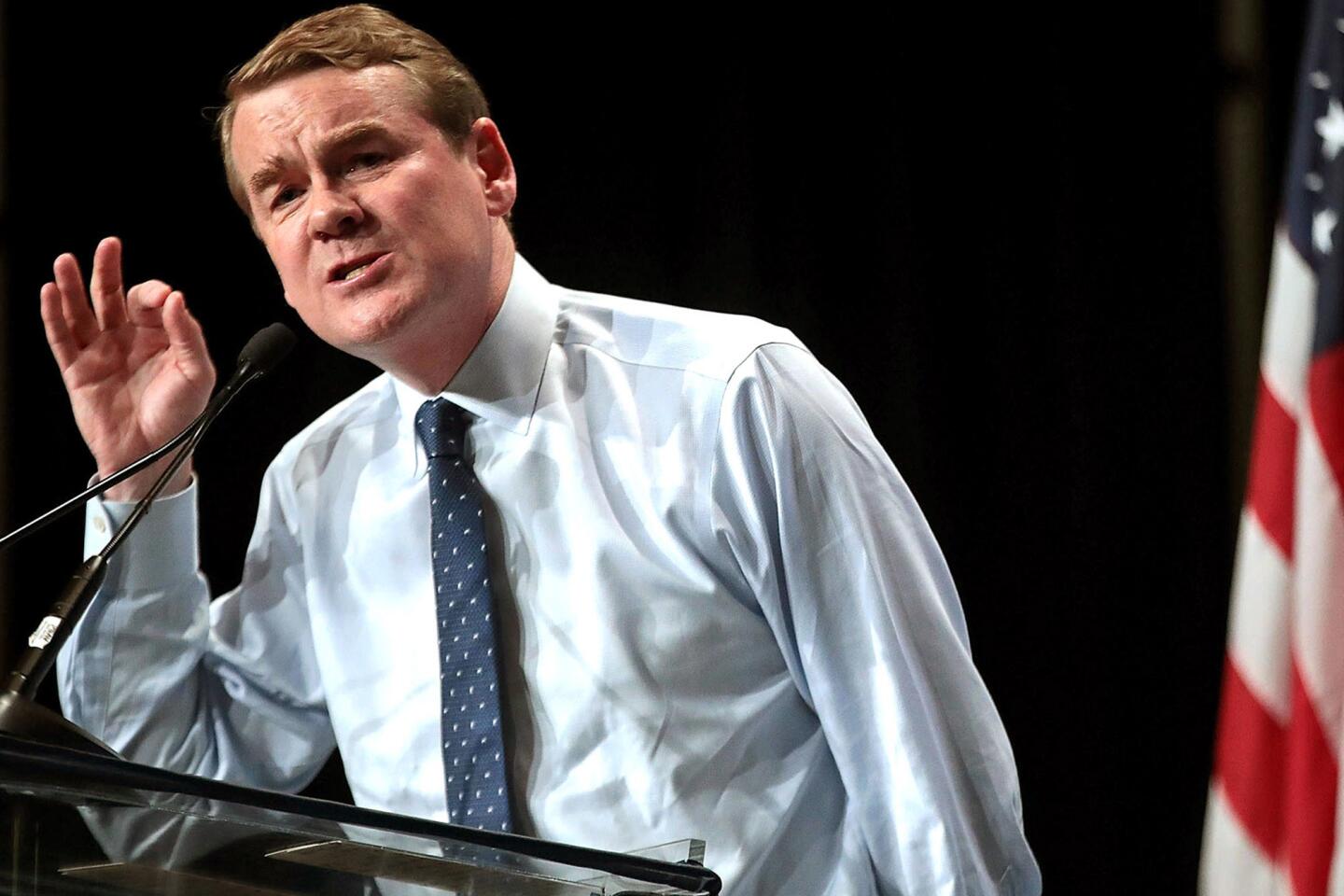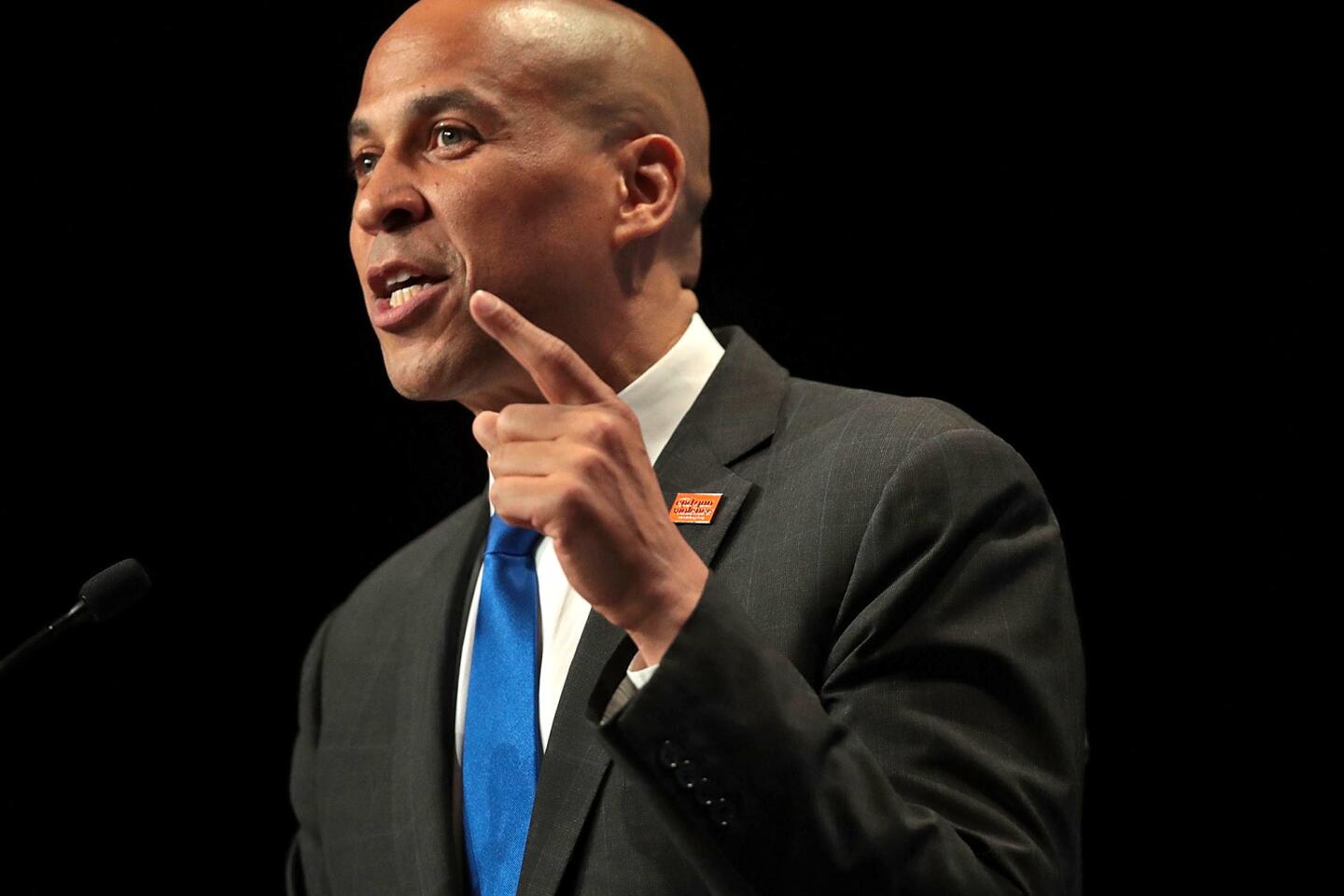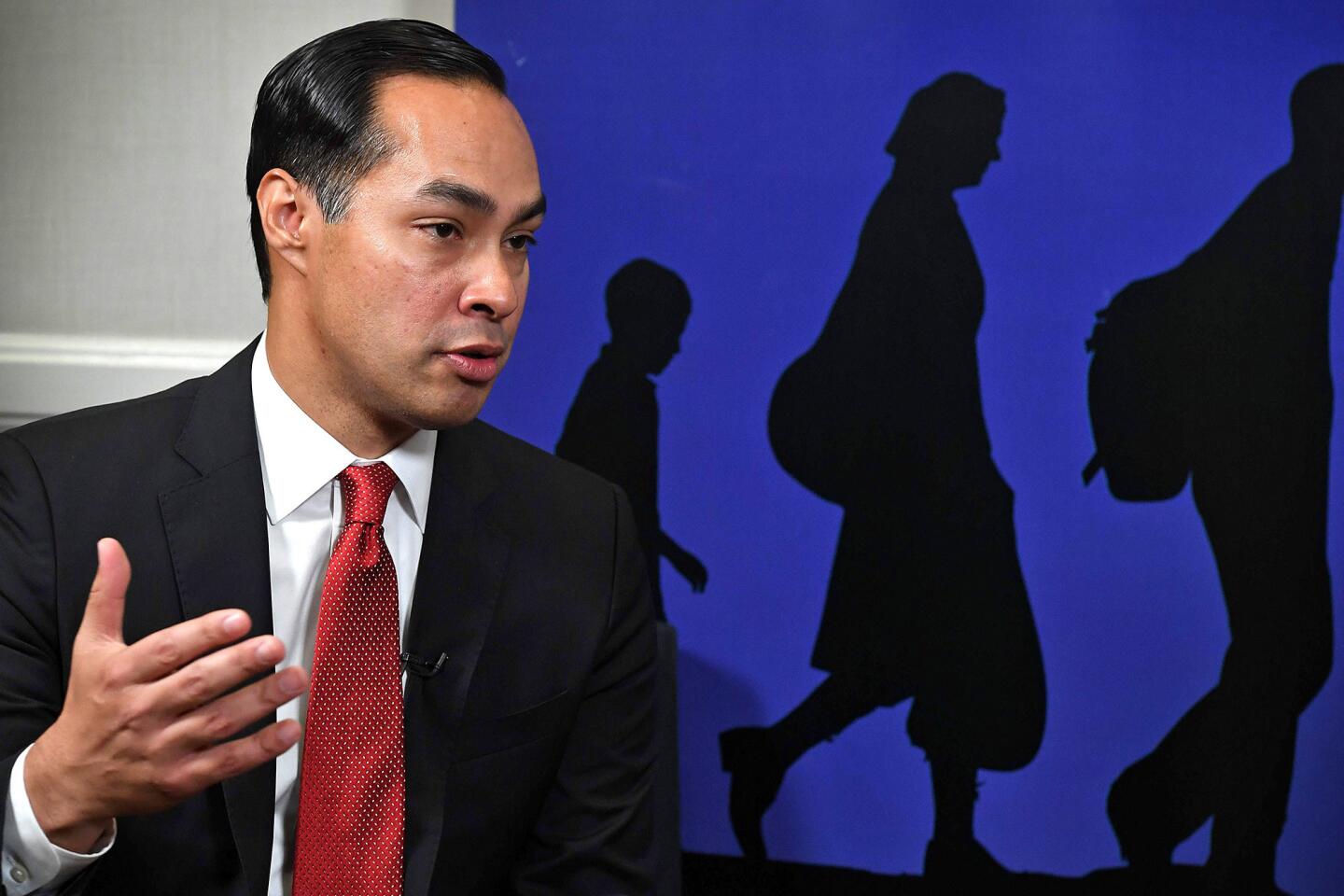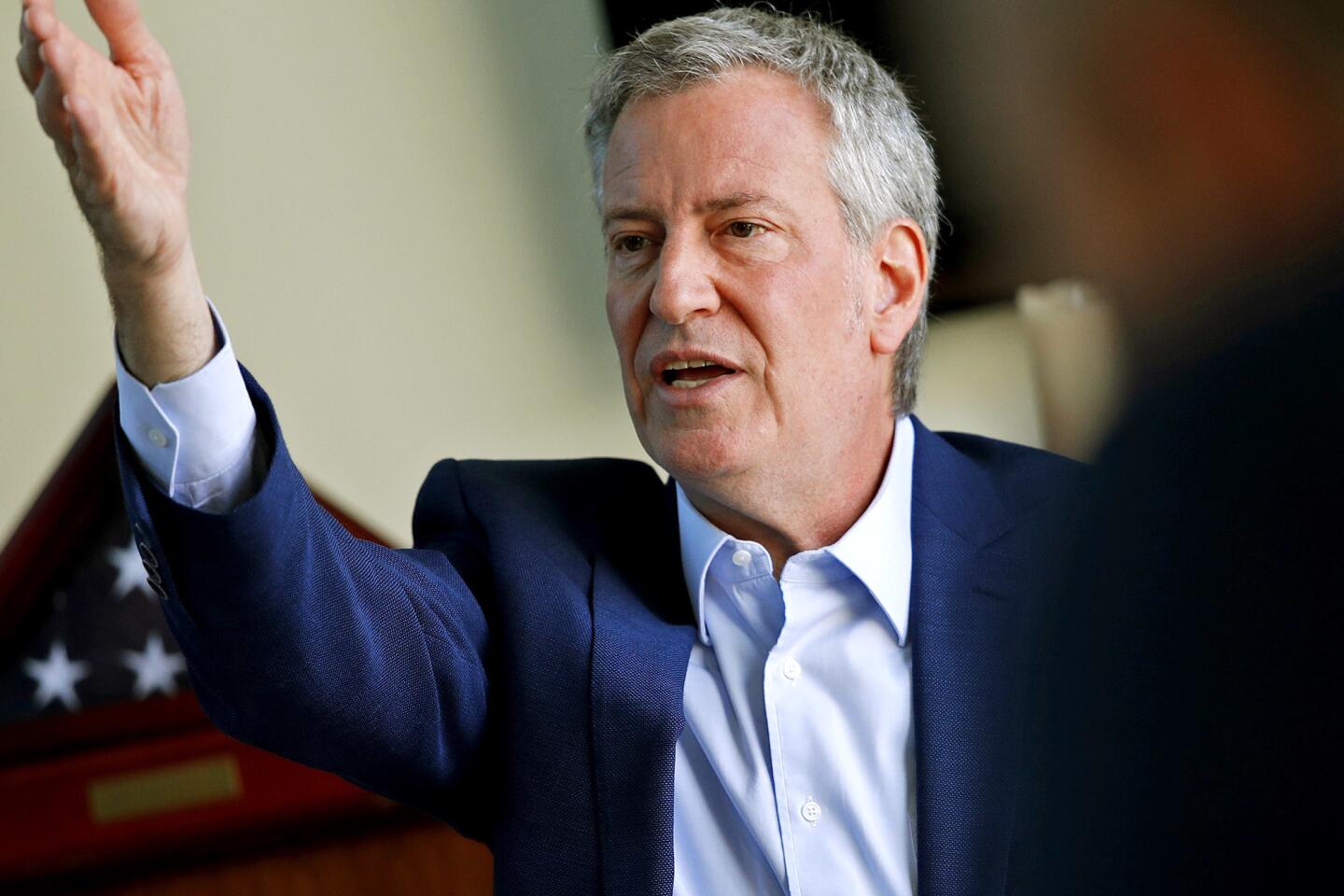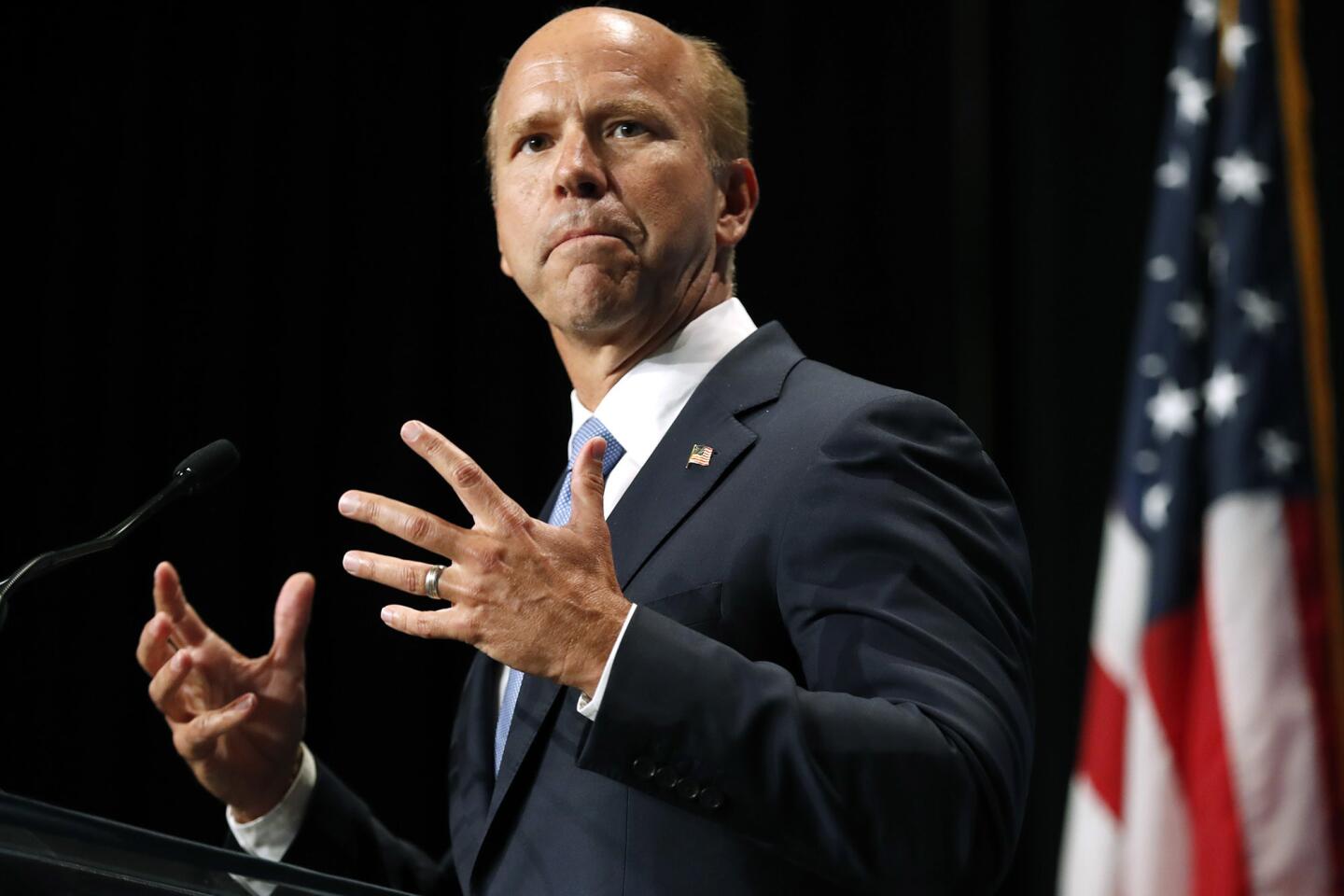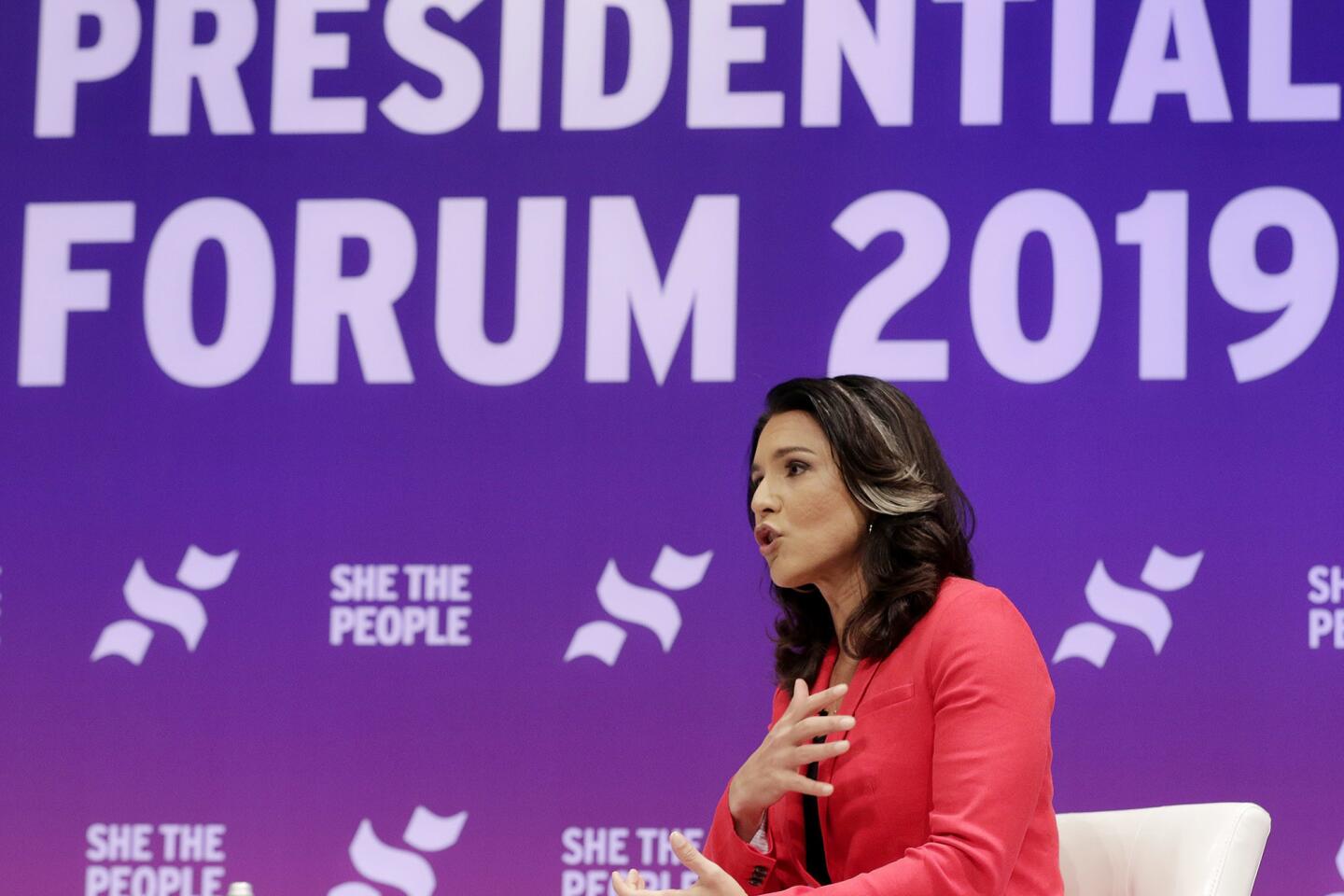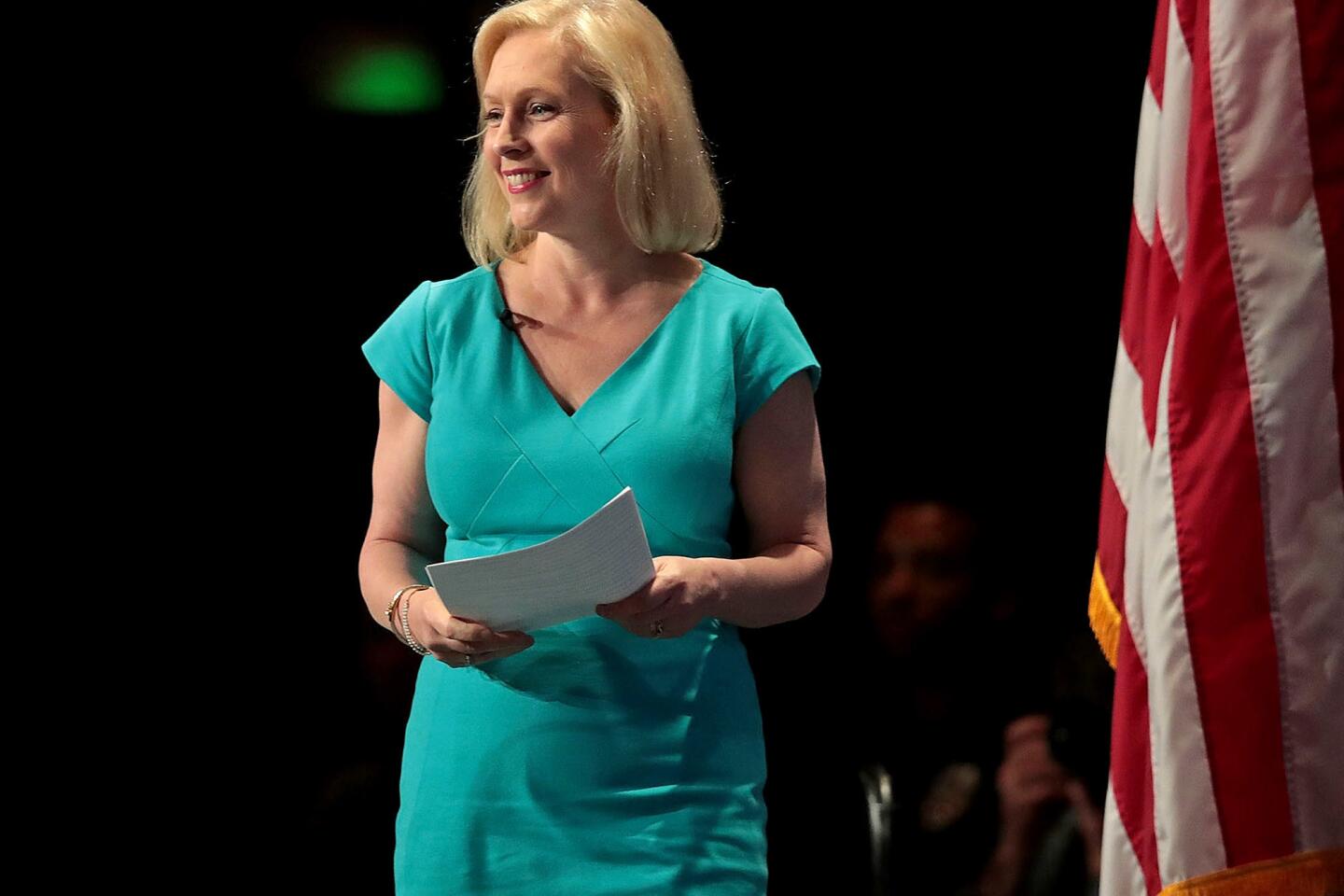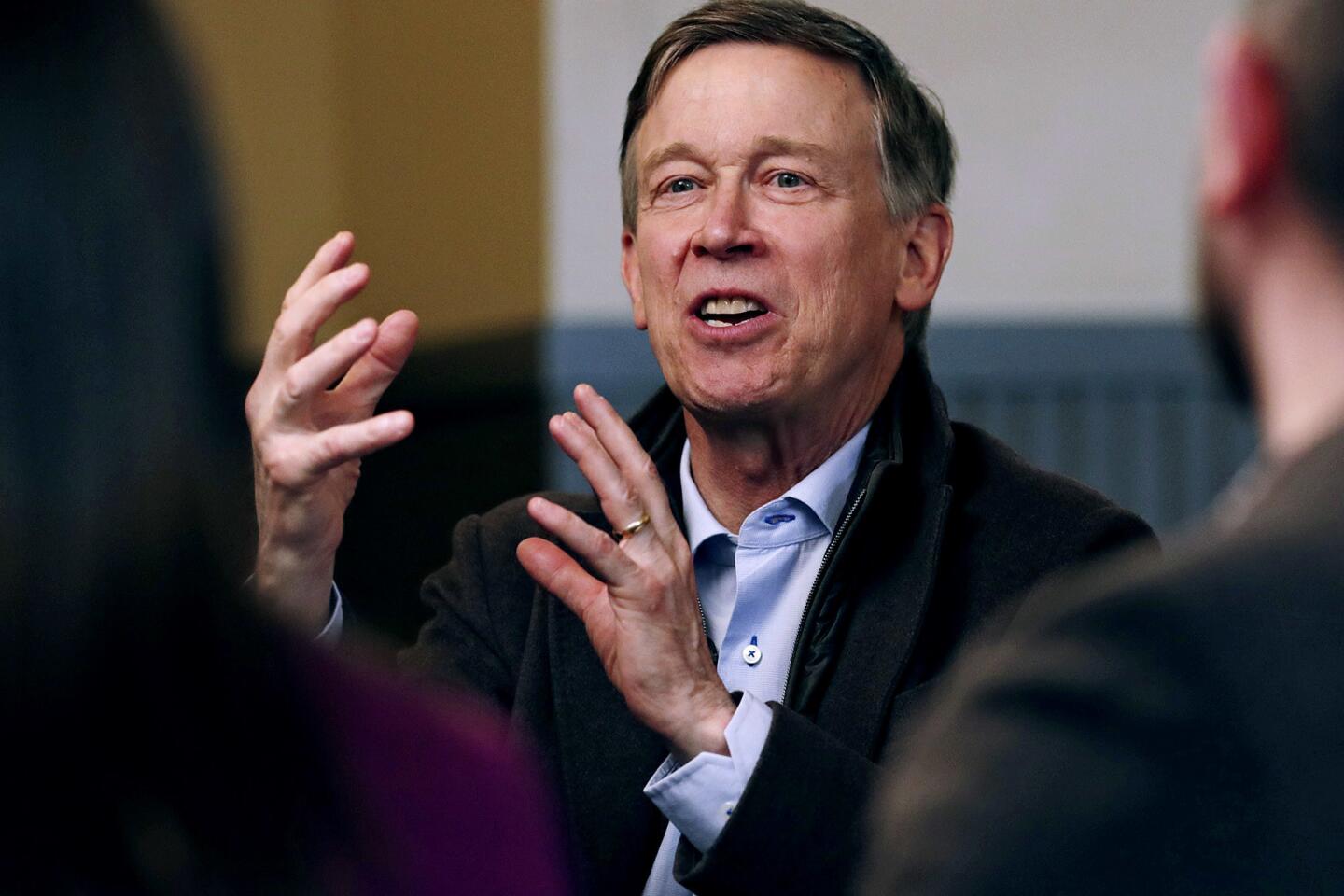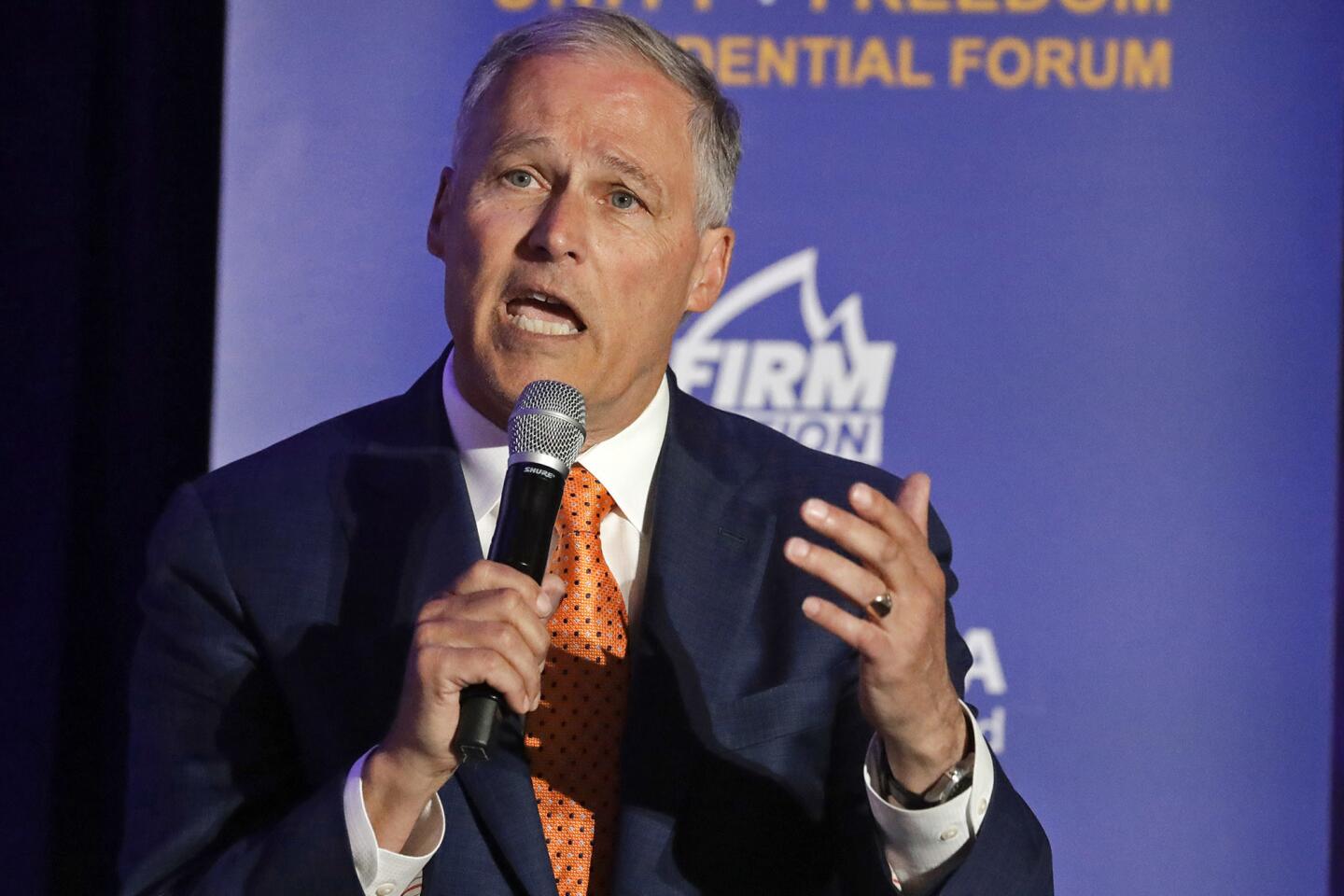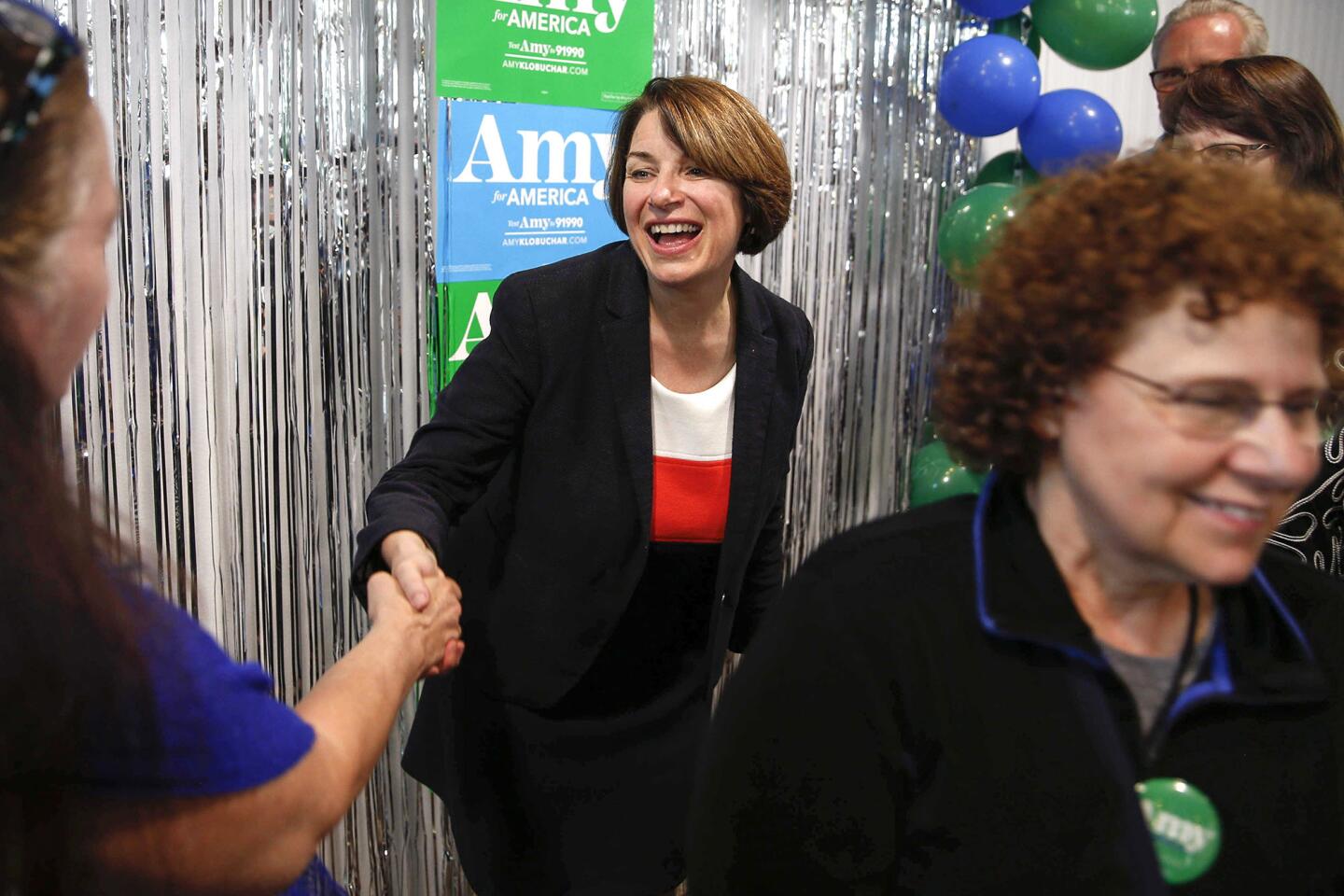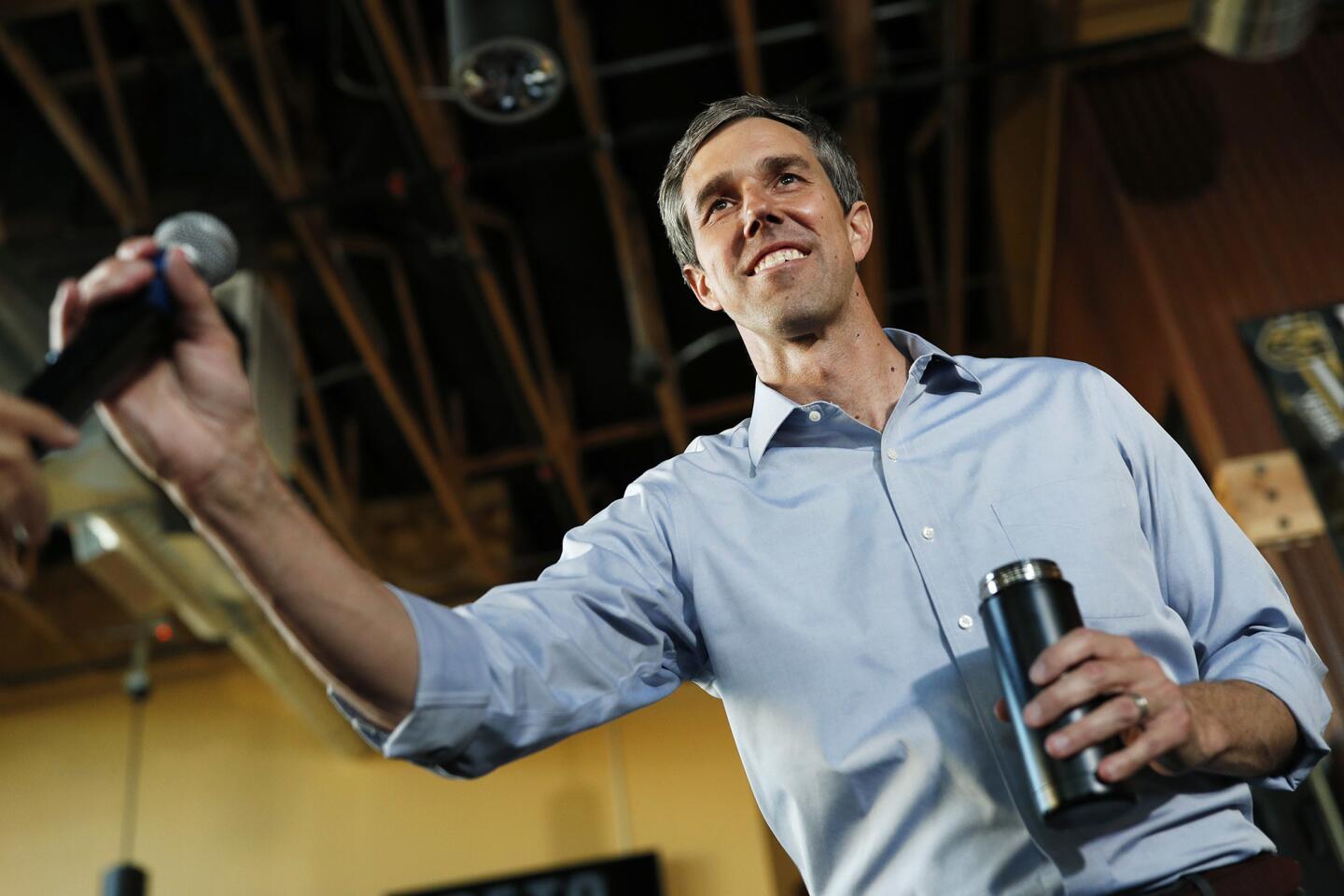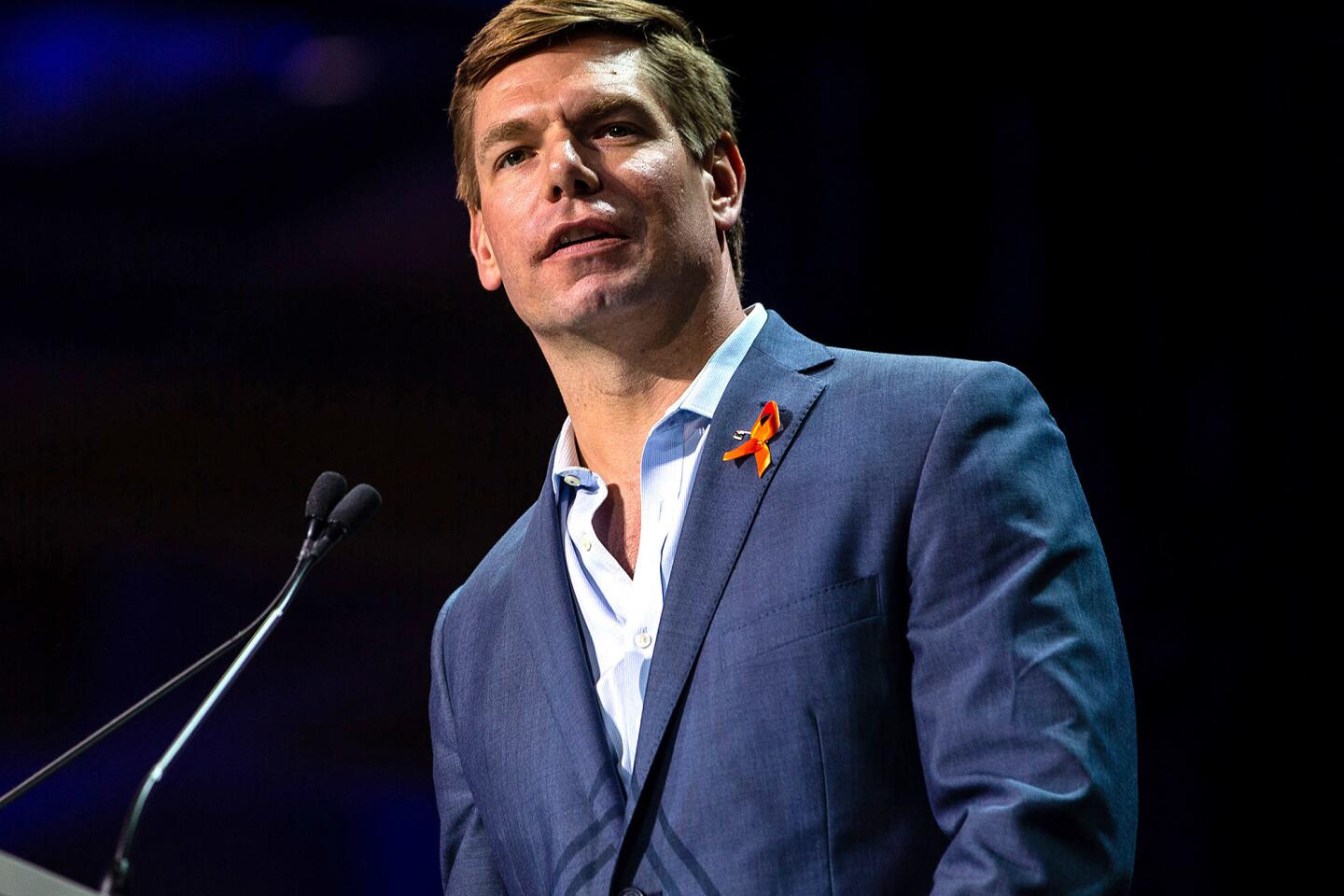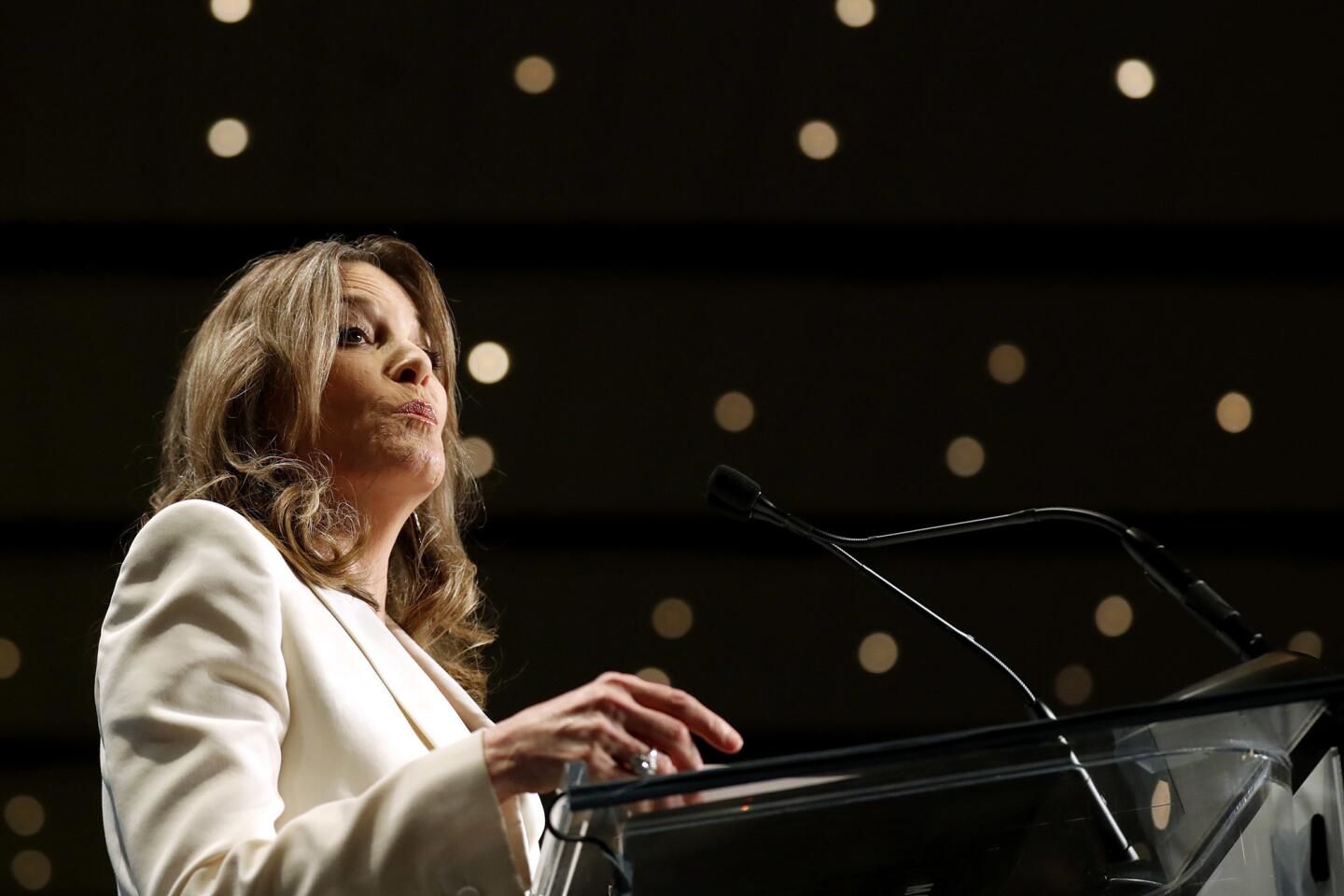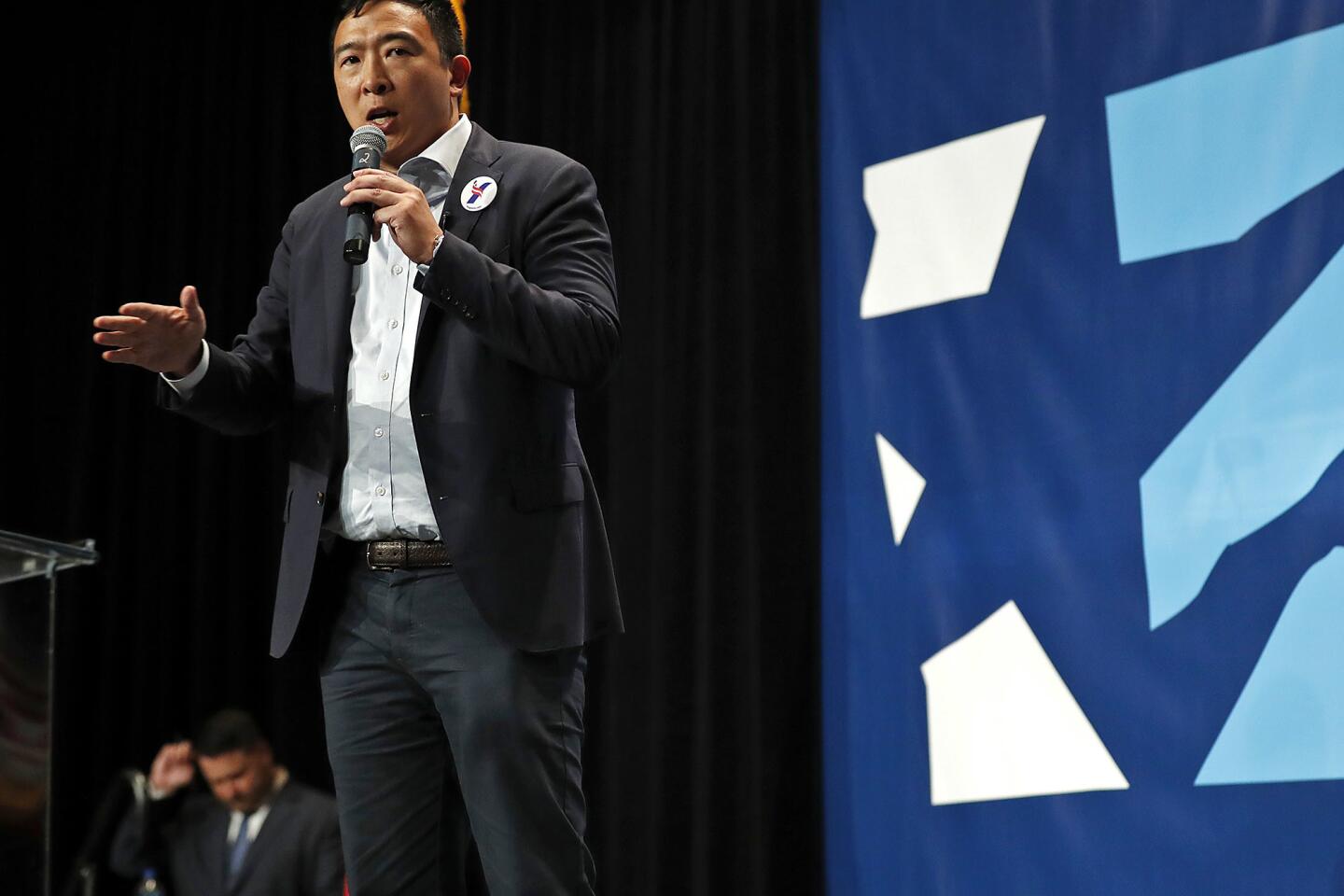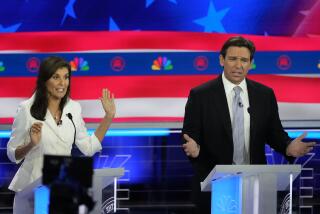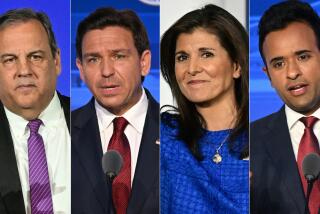Democrats set their 2020 debate lineups — Biden faces Sanders, while Warren spars with Booker
Not every 2020 Democratic hopeful will get to go head to head with front-runner Joe Biden when the candidates meet for their first debate in Miami later this month, but the former vice president will be on the stage with some formidable rivals, including Sens. Kamala Harris and Bernie Sanders and South Bend, Ind., Mayor Pete Buttigieg.
The first night of the two-night debate, on June 26, will feature Sens. Elizabeth Warren of Massachusetts and Cory Booker of New Jersey and former Rep. Beto O’Rourke of Texas.
Biden and the other leading candidates will appear on the second night, June 27, according to NBC, which is hosting the debate.
NBC News and Telemundo held a drawing Friday afternoon to determine who will get to tangle with whom among the 20 candidates qualified to be on the debate stage.
Each night, a pack of lesser-known candidates will share the stage with the leaders, hoping the event becomes an opportunity to break out from the scrum and ascend in national polls.
It’s a high hurdle.
Even with the event broken into two nights, with two hours each night, each candidate will only get a few minutes to speak. Biden and others with strong polling numbers, including Sanders and Warren, may be able to cruise through the night sticking to tested talking points and sound bites. The candidates well behind in the polls will have few opportunities to throw the leaders off their game plans and create their own viral moments.
The lineup was chosen randomly, with the names of candidates written on pieces of paper that were folded, put into a box and drawn out blindly while representatives of each of the campaigns watched.
But the results nonetheless give an advantage to some candidates. Several of Biden’s top-tier rivals, who are eager to chip into his lead, landed alongside him. Sanders, who is polling in second place in many national surveys, will have an opportunity to highlight Biden’s moderation and reluctance to embrace progressive policies, including universal healthcare and free four-year public college.
Harris and Buttigieg’s presence on the stage will call attention to the fact that both Biden and Sanders are white men in their mid-70s, with policy ideas that date back years.
Warren’s absence from that grouping could cut both ways. At a time when her campaign is ascendant and she has overtaken Sanders in some polls, the Massachusetts senator won’t be there on the night likely to attract the most attention. But she will be the star of the first session of these highly anticipated debates.
Most of the candidates with whom Warren will be sharing the stage are polling in the low single digits, including some who made a splash when they entered the race, including Booker, O’Rourke and Minnesota Sen. Amy Klobuchar.
For the candidates polling so poorly that they are relative unknowns to most Americans, a podium alongside Biden and Sanders could be an opening for them to have a moment. Those hopefuls include entrepreneur Andrew Yang and activist and author Marianne Williamson, who writes about spirituality.
The political battle royale is almost sure to be watched by millions.
The debate, to be televised live by NBC, MSNBC and Telemundo, will feature questions from news anchors Savannah Guthrie, Lester Holt, Chuck Todd and José Díaz-Balart and MSNBC’s Rachel Maddow.
Several televised town halls this year featuring just one 2020 hopeful at a time have attracted cable news audiences exceeding 2 million viewers. The first Republican primary debate in the 2016 presidential cycle, an unwieldy affair with 17 contenders divided into two groups, attracted roughly 24 million viewers. It was one of the most watched broadcasts ever on cable news.
California Democratic 2020 presidential primary is a wide-open race, poll finds »
When the GOP faced such a massive field, it relegated the candidates with lower poll standings to what got branded an “undercard” debate. The Democratic National Committee opted not to take that approach. Facing intense scrutiny in the aftermath of a messy 2016 primary, during which the party was accused of tilting the scale in favor of Hillary Clinton, the establishment-favored candidate, the DNC leadership is straining to project inclusivity and transparency.
Hence the lottery — actually two lotteries, one for candidates above 2% in the polling average, the other for those below, designed to ensure that some from each group will be on stage each night.
Still, some measure of internal strife is inevitable when the stakes are so high. And this debate is no exception. The concentration of higher-polling candidates on the second night led to some intra-party grumbling and second guessing of the DNC’s decision not to take more initiative in shaping the lineup.
One hopeful who won’t be on the stage is Montana Gov. Steve Bullock, who joined the race in mid-May. He barely missed the threshold of 1% of support in DNC-approved polls — nationwide or in early-voting states — or contributions from at least 65,000 donors. Bullock accused the party of penalizing him for delaying his entry so he could focus on his state’s business during its legislative session.
As the debate lineup was unveiled, Bullock was rolling out a fundraising ad featuring a Montanan in a camo hat, alongside his dog and hunting hunting gear, disgusted with the DNC for excluding a Democrat who won in a state that Trump carried by 20 points.
Rep. Seth Moulton of Massachusetts and Wayne Messam, the mayor of Miramar, Fla., also failed to meet the threshold for joining the first debate.
Bullock and the others may make the cut for the next round of debates, in July, but since the DNC has capped the total number of eligible candidates at 20, someone else will get bounced out if they succeed.
Some progressive activists are also protesting that the DNC refused the request of one candidate, Washington Gov. Jay Inslee, to hold a debate focused exclusively on climate change. Grassroots anger over the refusal was intensified by the party’s warning that candidates who participate in an unsanctioned climate debate may not be invited to any of the 11 planned DNC primary debates that will follow the Miami event. The rule is standard protocol for the DNC and had been spelled out to candidates before Inslee made his request.
Candidates are permitted to participate in forums and town halls not sanctioned by the DNC, and progressive groups are working to organize at least one such event focused on climate.
The debate over debates is certain to intensify as the race lumbers on. The barrier to entry will start ratcheting up before the candidates meet for a third debate in September, as the DNC looks to remove the less viable from the stage. Those who aren’t registering 2% in the polls by then or raising money from at least 130,000 donors won’t make the cut.
Subscribe to the Los Angeles Times 2020 election calendar »
More to Read
Get the L.A. Times Politics newsletter
Deeply reported insights into legislation, politics and policy from Sacramento, Washington and beyond. In your inbox three times per week.
You may occasionally receive promotional content from the Los Angeles Times.
